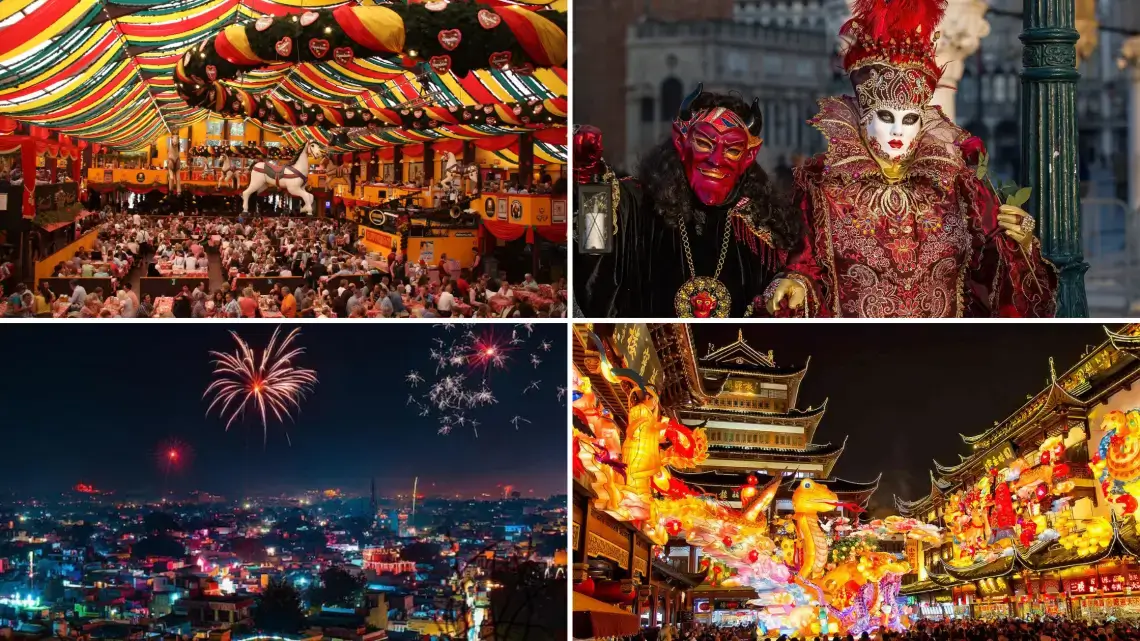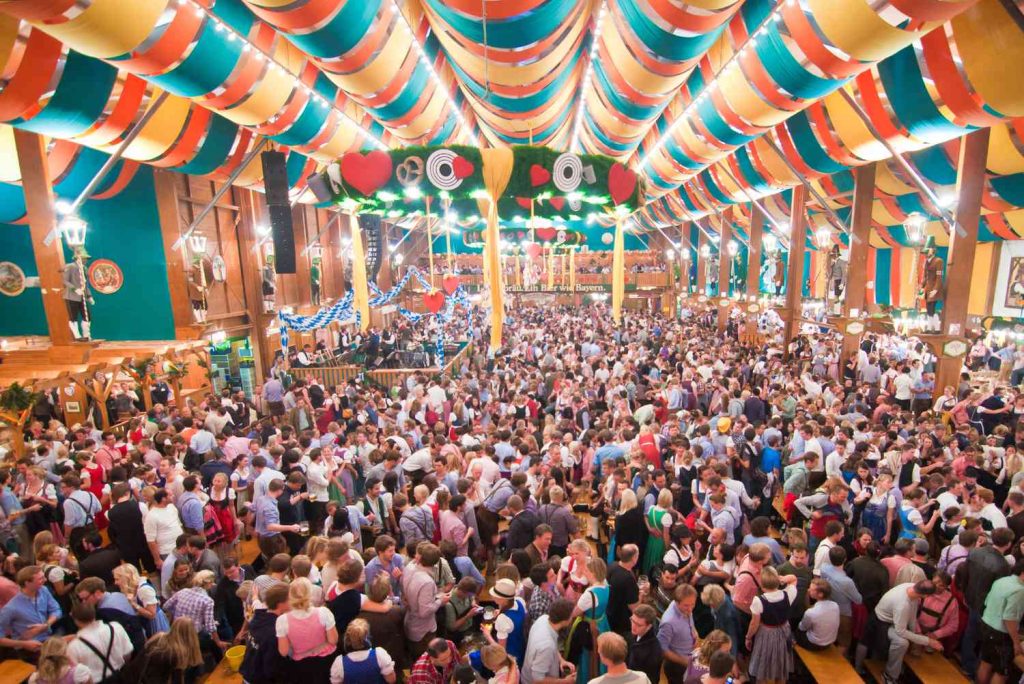Around the world, festivals serve as a platform for showcasing delectable foods that have been handed down through the years in addition to being celebrations of culture and legacy. A key component of these celebrations is traditional dishes, which provide a mouthwatering window into the diverse range of flavours, ingredients, and preparation methods that are exclusive to each country. This article takes the reader on a delicious culinary tour of Celebrations around the world and the traditional cuisine that makes them unique.

India’s Diwali
One of the biggest Celebrations in India is Diwali, sometimes referred to as the Festival of Lights. Diwali is a time for feasting, fireworks, and family get-togethers. It represents the triumph of light over darkness and good over evil. During this celebration, traditional cuisines are highly valued, with each region having its unique culinary offerings.
Delicious treats like Gulab Jamun, Jalebi, and Barfi are popular throughout Northern India. These delicious sweets represent the sweetness of life and wealth and are prepared from components like milk, sugar, and flour. They are then perfectly fried or baked.
Savoury treats like Masala Vada, Bajji, and Murukku are made with care and precision in Southern India. These crunchy treats, which are frequently served with delectable chutneys and sauces, are evidence of the region’s culinary richness and skill.
American Thanksgiving
The famous American holiday of Thanksgiving is observed on the fourth Thursday of November. Thanksgiving is a time to give thanks, spend time with family and friends, and eat a magnificent feast that revolves around roasted turkey. Traditional side dishes like stuffing, cranberry sauce, and mashed potatoes give the turkey the stage, but they also add depth and flavour to the feast.
Furthermore, regional differences in traditional dishes provide a varied gastronomic experience throughout the United States. For instance, the rich agricultural legacy and culinary customs of the South are reflected in the region’s Thanksgiving table classics, which include collard greens, sweet potato pie, and cornbread stuffing.
China’s Lunar New Year
Chinese New Year, or Lunar New Year, is a colourful and exuberant event that ushers in the lunar calendar. Families gather to pay respect to their ancestors, trade gifts, and enjoy lavish feasts that include a variety of customary foods.
The whole fish is another must-have meal for Lunar New Year’s, representing prosperity and plenty for the upcoming year. The fish is presented entire, whether it is steamed or braised, to symbolize unity and completion within the family.
Read more about Traditional Italian Clothing: An enduring fashion tapestry
Germany’s Oktoberfest
Munich, Germany hosts Oktoberfest, the biggest Volksfest (beer festival and travelling funfair) in the world, every year. During this 16–18-day folk festival, beer is the main attraction, but traditional Bavarian cuisine is just as important to the festivities.
Pretzels, savoury baked bread products that go well with beer, are one example of such a mainstay. Festival visitors love these huge, doughy snacks as a snack, especially with cheese or mustard.
The filling Bratwurst, a kind of German sausage prepared from pig, beef, or veal, is another famous food. The Bratwurst, when perfectly grilled and paired with mustard and sauerkraut, perfectly captures the hearty, earthy tastes of Bavarian cuisine.

FAQs
What function do customary dishes serve during festivals?
During joyous festivals, traditional foods act as cultural icons and unite communities.
What impact do holidays have on the way traditional foods are prepared?
In order to respect ethnic conventions and rituals, festivals frequently determine the materials, cooking techniques, and presentation of traditional cuisine.
Are there any health risks involved in eating traditional meals during festivals?
Even while some foods served during festivals may seem decadent, the key to enjoying them without sacrificing health is moderation and balance.
What role do particular traditional cuisines play in festivals?
During festival celebrations, traditional foods frequently have symbolic meanings connected to prosperity, unity, and cultural heritage.
In what ways do festivals aid in the conservation of customary cooking techniques?
Festivals offer a means of preserving traditional recipes, culinary methods, and cultural narratives by transferring them from one generation to the next.
In summary
Celebrations act as a melting pot of cultures, bringing together customs, traditions, and culinary history to produce unique experiences. Traditional meals are an integral part of many happy occasions, such as the vivid celebrations of Lunar New Year in China, the colourful festivals of Diwali in India, the family get-togethers of Thanksgiving in the United States, and the beer-soaked revelry of Oktoberfest in Germany.
We come to understand the importance of food in maintaining cultural identity, cultivating community, and helping us stay connected to our roots as we travel the world and indulge in a wide variety of flavours and scents. Therefore, the next time you’re at a festival, stop and enjoy the traditional dishes that are served, as they provide nourishment for both the body and the soul.








